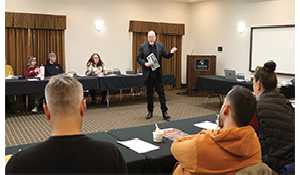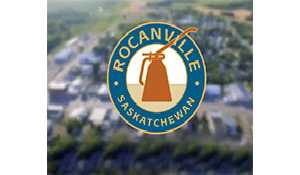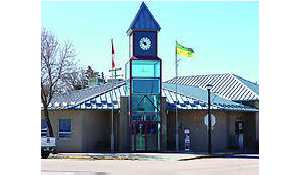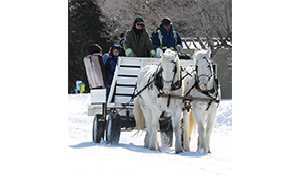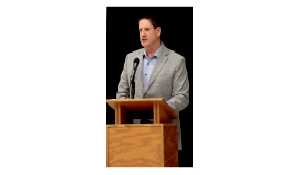Almost cradle to grave . . .
October 30, 2017, 9:21 am

The socialist thinkers 150 years ago, at the height of the industrial revolution, imagined a utopian future in which governments would take care of their citizens from the cradle to the grave.
Things were a little rough back then. We have come a long way from the poorhouses and debtors’ prisons of Dickens’ day, but people may not realize that we may be closer to a world in which the government takes care of its citizens from cradle to grave than we realize.
Think about it—if you are born in a hospital in Canada, your parents aren’t paying the costs of the birth, all taxpayers are sharing in the cost—something unthinkable to most people in the world today, and to almost everyone throughout history.
As soon as you are born, your parents start receiving government assistance. For the next 18 years, your parents receive income from the government each month to help raise you—up to $6,400 per year up to age six and then $5,400 up to age 18. (It was the decision by the government to start indexing these payments last week that got me thinking, which is always dangerous . . .)
If the Dione Quintuplets were born today (if you’re too young to know who they were, google them!), their parents would receive $32,000 per year for the first six years and $27,000 a year for the next 12 years—a total of $516,000.
You receive the maximum if your family income is less than $30,000, but you still receive about $100 per child per month if your family income is $150,000.
If your parents are just getting by, that money helps pay some basic costs (and the numbers are showing that the extra money in circulation is really juicing the economy). If they are more well off, they are putting it into an RESP for you—and getting a government grant to top it up by 20 per cent. Depending on their income, your parents could also be receiving GST credits for you.
You had no idea you were so valuable!
In addition, you are entitled (or actually compelled) to receive an education from Kindergarten to Grade 12 completely free of charge. For most people in most parts of the world through most of history, that would be an unbelievable benefit.
Now once you turn 18, the Canada Child Benefit stops flowing to your parents. Let’s assume you go to university for four years. You might be withdrawing money from your RESP, including a government grant, or you might be getting a government student loan, which depending on your parents’ income may include a grant as well. The government gives you generous tax breaks as a student as an additional way of supporting you.
Or you could be like me. I never took out a student loan, and I worked various jobs from making pizza to reporting for a community newspaper in Regina to handling subscriptions for the college paper to work my way through school, so I can proudly say I paid my own way.
But did I really? Tuition costs actually don’t cover much of the cost of an education, and Canadian universities and colleges receive generous government funding (although university and college boards never call it generous) to help them do what they do.
So while I would like to believe that I pulled myself up by my bootstraps and covered the cost of my education, the government actually paid for most of it by directly subsidizing the university. According to Statistics Canada, tuition fees account for 15.4 per cent of university revenue in Saskatchewan and 19.2 per cent of university revenue in Manitoba. And that 15.4 per cent total includes the much higher tuition fees paid by international students—as Canadian students we get a huge break on tuition. (At least at the undergrad level—tuition for colleges like medicine and law are a little more reflective of the actual costs of an education. Canadian students at the University of Toronto law school, for example, are paying $36,440.36 in tuition alone this year—and that’s the discounted rate for Canadians. International students are paying $48,992.36).
Government transfers accounted for about 60 per cent of university revenue in both Saskatchewan and Manitoba, so I guess we’re all dependent on the government at that stage of life.
Then you graduate from university. Now you’re on your own, right? Well . . . different provinces have different ways of doing it, but most provinces have some way of supporting people at this stage and helping them take care of that student debt.
In Saskatchewan it’s the Graduate Retention Program which will rebate that tuition you just paid up to $20,000. If you’re fairly low income, you paid that tuition with government grants, and now that you’re working, the government refunds you the money that they paid for you! No better deal than that!
Okay, so you get that paid back over a few years, and now you’re on your own—unless you start having kids.
Let’s say you’re 28 at this point and you have three kids over nine years. Now you’re getting those Canada Child Benefit payments for your children until you’re 55, along with Canada Savings Grants if you’re able to put some money into an RESP, and possibly GST payments for the kids depending on your income. Those Canada Child Benefit payments are up to $103,200 per child over the 18 years covered, so if you have three kids, that’s $309,600 you are receiving in that benefit alone. And as of next year, payments will increase each year.
But once the last kid turns 18 you’re finally on your own. You’re 55 years old and, assuming you’re now making enough not to qualify for a GST cheque, you have a lifetime ahead of you without any government support.
A lifetime of 10 years anyway, until you turn 65.
At that age every Canadian starts receiving Old Age Security payments for the rest of their lives (although it is clawed back at higher incomes). If you’ve had a career and paid into the Canada Pension Plan you will receive CPP, which is your own contributions being paid back to you. If not, not to worry—the government has your back. If you don’t qualify for CPP the government will top up your OAS with the Guaranteed Income Supplement for the rest of your life. Probably a good thing, because senior poverty is not the problem it was 60 years ago.
The government’s not quite taking care of people from the cradle to the grave, but it seems to be getting awfully close!



